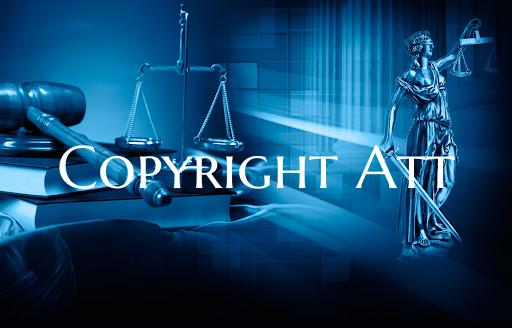
Copyright Att
Copyright law plays a crucial role in safeguarding the rights of creators and intellectual property owners. By granting exclusive rights to authors and creators, copyright law serves as a bedrock for creativity, innovation, and economic growth. In this comprehensive guide, we delve into the intricacies of copyright law to provide an overview of copyright protection and enforcement.
What is Copyright?
Copyright is a form of intellectual property law that grants the creator of an original work exclusive rights to its use and distribution. These rights typically include the right to reproduce, distribute, perform, display, and create derivative works based on the original work. It covers a wide range of creative works, including literary works, music, art, software, and other forms of expression.
Key Principles of Copyright Law:
- Originality: In order to be eligible for copyright protection, a work must be original and fixed in a tangible form of expression. This means that the work must be independently created by the author and must exist in a physical or digital medium. - Duration: Copyright protection is limited by duration. In most countries, copyright protection typically lasts for the life of the author plus an additional number of years. After the copyright term expires, the work enters the public domain and can be freely used by anyone.
- Fair Use: The concept of fair use allows limited use of copyrighted material without the permission of the copyright owner. Fair use is determined by factors such as the purpose of the use, the nature of the copyrighted work, the amount used, and the effect on the market for the original work.
Enforcement of Copyright:
Copyright owners have the right to enforce their exclusive rights through legal action. Enforcement mechanisms may include issuing takedown notices for online infringement, filing lawsuits against infringers, and seeking remedies such as damages or injunctions. In cases of egregious infringement, criminal sanctions may also apply.
International Copyright Protection:
Copyright protection is typically territorial, meaning that it is granted based on the laws of a specific country. However, international treaties such as the Berne Convention and the WIPO Copyright Treaty provide a framework for mutual recognition of copyright protection among member countries. These agreements help ensure that creators enjoy protection for their works on a global scale.
In conclusion, copyright law is a vital tool for protecting the rights of creators and fostering a vibrant cultural and economic landscape. By understanding the principles of copyright protection and enforcement, creators can better navigate the complexities of copyright law and safeguard their intellectual property.
